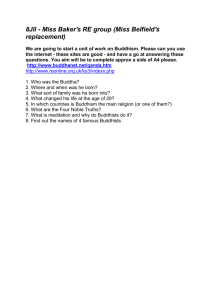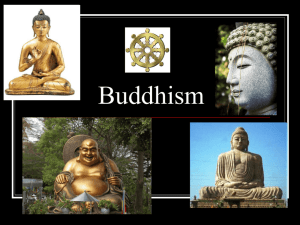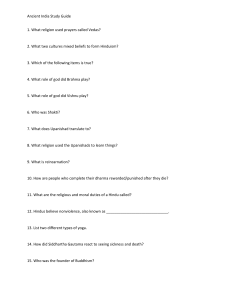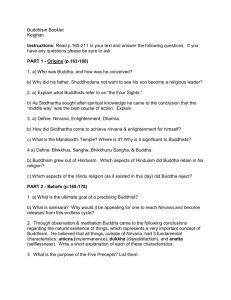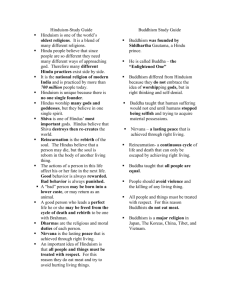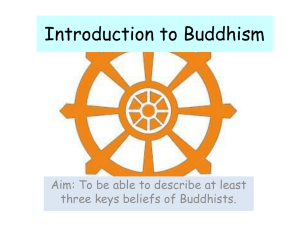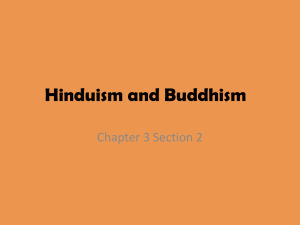Buddhism ppt 2015
advertisement
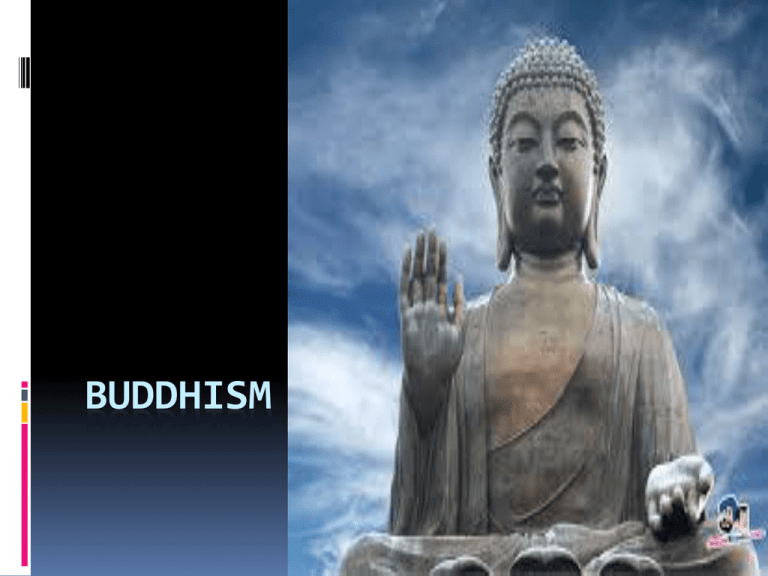
BUDDHISM Basic Information Began in India Sprang from Hinduism Indian prince – Siddhartha Gautama Unhappy with life and the sufferings of the world – gave up wealth and prestige to seek enlightenment/wisdom Attained it while meditating under a fig tree around 531 BC Buddha means “enlightened one” Gautama (Buddha) preached and spread his ideas across India until his death. Buddhists believe he broke the endless cycle of death and rebirth central to both Buddhism and Hinduism and attained Nirvana (a state of blissful non-existence) Basic Information Four Noble Truths Eightfold Path Nirvana – asking a Buddhist to describe Nirvana is similar to asking a Christian, Jew, or Muslim to describe Heaven – thus hard to explain – people have their own views Do no believe in a personal creator or personal God Buddha did not claim to be a god, nor did he claim to have received any revelation from a god. Many statues of Buddha but Buddhists do not worship him as a deity Controversial from other religions viewpoint because they do not recognize the existence of an all-powerful god thus they claim that Buddhism is not a religion at all, but a way of life. Buddhists have no concept of a Savior or of a heaven. Relate Nirvana to Heaven but, Nirvana is looked at by Buddhists as being a state of non-existence rather than a place where people spend eternity Nirvana is a state of nothingness, in which a person escapes the wheel of rebirth and simply ceases to exist. Believe in reincarnation, but they do not believe a soul is transferred from one body or thing to another Karma determines what one will be reincarnated as Worship Go to shrine room in temple to meditate Offerings are placed before a statue of Buddha out of respect, do not consider him a god Buddhists have no equivalent of a church, synagogue, or mosque. Do not have ministers, rabbis, or imams. Can listen to monks whose job is to help guide people in their quest to become enlightened. Ceremonies Birth and death are not important Emphasis is placed on being good and living a righteous life in the hope of being born into a higher state of goodness in the next life. Marriages are arranged. Regarded as social not religious events – marriage performed by family and friends Funerals are not sad affairs. They are intended to help the dead person attain a better birth. Writings No single collection of writings Nothing comparable to Bible, Torah, or Quran. Tipitaka is the most important of all Buddhist writings 400 years after Buddha’s death his teachings had not been passed down by writings but by word of mouth


